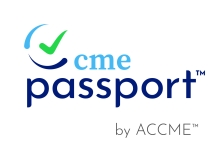With the recent passages of legislation allowing the use of medical cannabis, the need for education and training for medical providers and those working with individuals using addicitve substances is paramount.
What is this course?
The Medical Cannabis Education 4.75-Hour Course has been approved by the Utah Department of Health and satisfies the Utah educational requirements to become a practitioner in the Utah Medical Cannabis Program.
With the passage of the Utah Medical Cannabis Act, Utah state law requires at least four hours of medical cannabis-specific continuing education for qualified medical providers.
Course content is designed by professionals and faculty with the University of Utah School of Medicine.
I don’t intend to recommend medical cannabis. Why would I take this course?
With the passage of the Utah Medical Cannabis Act, Utah patients will be seeking expert advice and guidance for medical cannabis options. Some of your patients may already be utilizing medical cannabis options, and your practice will need to understand the physiologic effects of cannabis as well as potential drug interactions.
Even if you do not intend to recommend medical cannabis, expertise in the endocannabinoid system and medical cannabis is key to providing expert care for patients’ overall health. Doctors, pharmacists, nurses, psychologists, and other health professionals who become educated in these issues will be distinguished by their ability to address patients’ health questions related to the endocannabinoid system and the clinical aspects of medical cannabis.
- Max CE Available: 4.75 Hours
Outline
- Cannabis History and Physiology
- Utah Medical Cannabis: Medical Cannabis Law
- Pain, The Endocannabinoid System, and Exogenous Cannabinoids
- Acute Adverse Effects of Cannabis
- Cannabis and Psychiatric or Mental Health Effects
- Cannabis and Medical Marijuana: Addiction, and Consequences of Illicit and Medical Use
- Cannabis and the Pediatric Patient
- Marijuana Use During Pregnancy and Breastfeeding
- Cannabis and the Neurologic Patient
Continuing Education
For controlled substance prescribers, you must claim CME credit at the end of the course to receive the DOPL required certificate of completion.
Other leaners need to check with their regulatory groups regarding allowed credit.


ACCREDITATION:
The University of Utah School of Medicine is accredited by the Accreditation Council for Continuing Medical Education (ACCME) to provide continuing medical education for physicians.
AMA CREDIT:
The University of Utah School of Medicine designates this enduring activity for a maximum of 04.75 AMA PRA Category 1 Credit(s)™. Physicians should claim only the credit commensurate with the extent of their participation in the activity.
SPEAKER AND PLANNING COMMITTEE DISCLOSURE SUMMARY:
The University of Utah School of Medicine Continuing Medical Education Office (UUCME) meets ACCME Standards for Integrity and Independence expectations regarding the identification and mitigation of relevant financial relationships with ACCME-defined ineligible companies. Everyone in control of content, including all speakers and planners, must disclose financial relationships in any amount within the past 24 months and any relevant financial relationships must be mitigated prior to the activity start.
DISCLOSURE:
Neither planners, speakers, or anyone in control of content have any relevant financial relationships with an ACCME-defined ineligible company to disclose or mitigate.
NONDISCRIMINATION AND DISABILITY ACCOMMODATION STATEMENT:
The University of Utah does not exclude, deny benefits to or otherwise discriminate against any person on the basis of race, color, national origin, sex, disability, age, veteran’s status, religion, gender identity/expression, genetic information, or sexual orientation in admission to or participation in its programs and activities. Reasonable accommodations will be provided to qualified individuals with disabilities upon request, with reasonable notice. Requests for accommodations or inquiries or complaints about University nondiscrimination and disability/access policies may be directed to the Director, OEO/AA, Title IX/Section 504/ADA Coordinator, 201 S President’s Circle, RM 135, Salt Lake City, UT 84112, 801-581-8365 (Voice/TTY), 801-585-5746 (Fax).






CME Passport: The CME credits that physicians earn from this activity will be submitted to ACCME’s CME Passport, a free, centralized web application where you can create a personalized account to view, track, and generate transcripts of your reported CME credit. Visit www.cmepassport.org to create your account.
COURSE CREDIT
All attendees are encouraged to use the CME system to claim their attendance. Physicians will be awarded AMA PRA Category 1 Credit(s)™; all other professions will be awarded attendance at a CME event credit that they may use for their re-credentialing purposes. All users will be able to print or save certificates. For questions regarding the CME system, please contact the UUCME Office. For questions regarding the re-credentialing process or requirements, please contact your re-credentialing organization.
MOC Part II
ABIM, ABP, and ABA need Successful completion of this CME activity, which includes participation in the evaluation component, enables the participant to earn up to:
- 04.75 Medical Knowledge MOC points in the American Board of Internal Medicine’s (ABIM) Maintenance of Certification (MOC) program; and
- 04.75 MOC points in the American Board of Pediatrics’ (ABP) Maintenance of Certification (MOC) program; and
- 04.75 MOC Points in the American Board of Anesthesiology (ABA) Successful completion of this CME activity enables the participant to earn up to 04.75 MOCA 2.0® points in the American Board of Anesthesiology® Maintenance of Certification in Anesthesiology Program®. Maintenance of Certification in Anesthesiology Program® and MOCA® are registered certification marks of the American Board of Anesthesiology®. MOCA 2.0® is a trademark of the American Board of Anesthesiology®
- ABS CC MOC Part 2 Successful completion of this CME activity enables the learner to earn credit toward the CME requirement(s) of the American Board of Surgery’s Continuous Certification program.
It is the CME activity provider’s responsibility to submit participant completion information to ACCME for the purpose of granting ABIM, ABP, ABA, and ABS CC MOC Part II credits.






MATE Act
Requirements for training for Medication Assistant Treatment as part of the MATE Act
On December 29, 2022, the Consolidated Appropriations Act of 2023 enacted a new one-time, eight-hour training requirement for all DEA registered practitioners on the treatment and management of patients with opioid or other substance use disorders. After June 27, 2023, practitioners will be required to check a box on their online DEA registration form (for both initial registration application and renewing registration) affirming that they have completed the new training requirement.
For our Utah practitioners, if you have completed the DOPL Controlled Substances (3.5+ hours) training at least 2 times previously, then you have already met this requirement. If you have attended any UU internal CME events in the past, such as Grand Rounds or Tumor Boards (TPC) where management of patients with opioid or other substance use disorders have been discussed for a total of 8 hours of credits, then you have already met this requirement.
If you feel that you have not met this requirement, or if you would like additional training, you can complete the University of Utah online Opioid Education for Utah Licensed Practitioners (which has a maximum of 8 hours of credit available) and the Screening, Brief Intervention, and Referral to Treatment (SBIRT) modules, which will meet the new requirements here: https://substanceei.com/
SBIRT is required for Utah controlled substance prescribers at some point, once, before their 2026 license renewal, per Utah DOPL regulations. So if you have completed the previous opioid training, you will still need to complete SBIRT before your next license renewal for the 2026 cycle.
If you are interested, more information on these new requirements can be found from the DOJ and DEA here: MATE_Training_Letter_Final.pdf (usdoj.gov)


